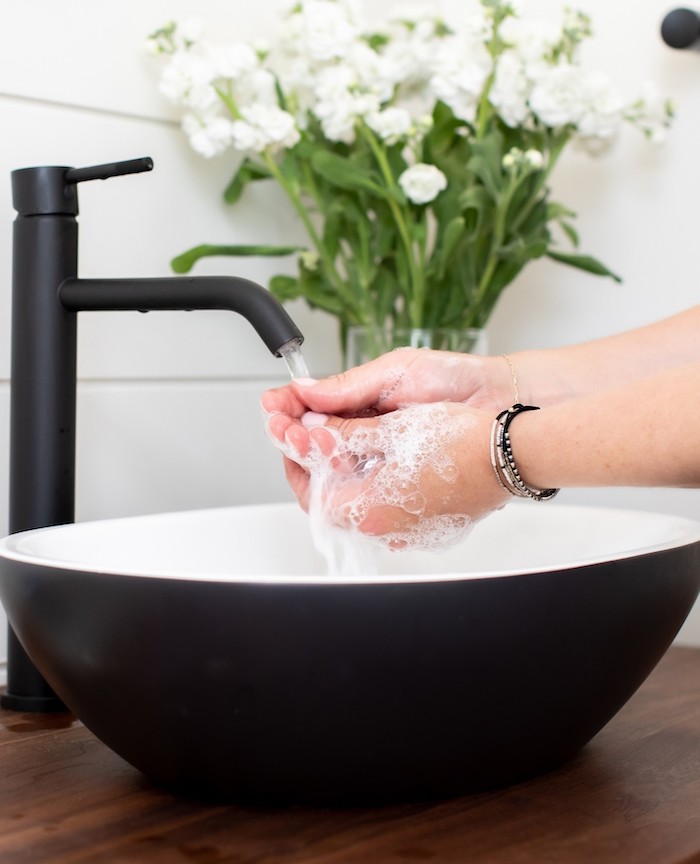LIFE
Tough Stuff
OCD isn't actually what you think it is

When you hear the term OCD, what is the first image that comes to mind? Perhaps you think of someone meticulously organizing their desk, making sure that each pen is arranged just so. Maybe you think about someone compulsively washing their hands over and over again until they burn red. But these stereotypes barely scratch the surface of the complex and often misunderstood reality of living with OCD.
My struggle with OCD
My earliest memories revolved around a need for reassurance and a pursuit to be perfect in the little tasks that made up my day. When I was 6 years old, I used to get a sick feeling that something terrible would happen if I didn't check all the locks on my windows five times. I wouldn't be able to touch a door without a nagging feeling of dirtiness engulfing me, forcing me to go through dozens of bottles of Bath & Body Works hand sanitizer every month.
Fast-forward 15 years later, and I still struggle to leave my apartment without triple-checking all my locks. Sick feelings have manifested into anxiety, whether it be catching a disease if I don't scrub my hands seven times a day or harm coming to my family if I mess up my morning routine.
Living with OCD means grappling with intrusive thoughts that invade my mind like uninvited guests. Having to push past the notion that I might contract an infection every time I touch something in a store or trying to ignore the random flashes of leaving the oven on or not locking the door is exhausting.
These thoughts can be irrational and distressing, making it a challenge to focus on everyday tasks. Imagine a radio that won't stop playing a tune you hate, no matter how hard you try to change the station—that's what it feels like to have OCD.
The stereotypes
Here's the thing: OCD is more than just quirky habits or an obsession with cleanliness. A common misconception is that OCD is synonymous with being a neat freak or overly organized.
I remember hearing a girl in my middle school class talk to her friends about how she was "so OCD" about having her pens color-coordinated on her desk, and it used to drive me nuts. While a lot of people with OCD experience compulsions related to cleanliness or order (I certainly have), others experience more nuanced symptoms.
Personally, my journey with OCD has involved a variety of obsessions ranging from intrusive thoughts about viral diseases like the flu to the compulsion of counting specific objects in a room until I was sure I would be safe for the day.
I also suffer from trichotillomania, a compulsion to pull out my hair, and it's been a 10-year struggle to stop myself from impulsively grabbing at my eyebrows and eyelashes. It's essential to understand that OCD is a spectrum—and each person's experience is unique.
The road to recovery
It took me a long time to come to terms with the fact that there was something going on with me. I thought I was alone in my battle, afraid of being judged or labeled as crazy. But reaching out for help was the turning point that gave me some sort of relief from the dark hole that had become my mind.
When I was first diagnosed with OCD, my doctor prescribed me with medication that helped the chemical imbalance in my brain. Therapy became my safe space, where I could openly discuss my thoughts without fear of judgment. I learned safe coping mechanisms that would help with my hair-pulling and other compulsive behaviors.
It took a lot of experimentation to learn what would best help my compulsions, but ultimately, I found that occupying and distracting my hands was the best solution to prevent a lot of my behaviors. Playing with kinetic sand when I'm watching a movie or picking at blades of grass instead of my eyebrows when I'm studying are a few of the things I've turned to for relief.
My healing journey
It's important to remember that recovery is *not* a linear process, no matter what you're going through. When starting to heal, there are always going to be more bad days than good days—and that's perfectly OK.
Building a support system outside of therapy can make all the difference in recovery. Surrounding yourself with understanding friends and family members can provide love and acceptance that you might not be able to give yourself on your healing journey. Not to mention that it's important to educate those around you about the realities of OCD to help break down the stigma around the condition...and mental health in general.
You are not defined by your struggles, and you're certainly not alone in them. Living with OCD can be challenging, but it doesn't diminish your strength or your worth.
If you or someone you know is grappling with OCD, don't be afraid to take the first step to reach out for help—there is always a path to healing.
Check out a few of these resources for helpful information and treatment for OCD:
📒 NOCD Treatment and Therapy
📒 International OCD Foundation
📒 BeyondOCD
📒 The OCD Project
Slider and top image: @msdlifestyle
POSTED IN LIFE, Tough Stuff

 become a contributor
become a contributor




















